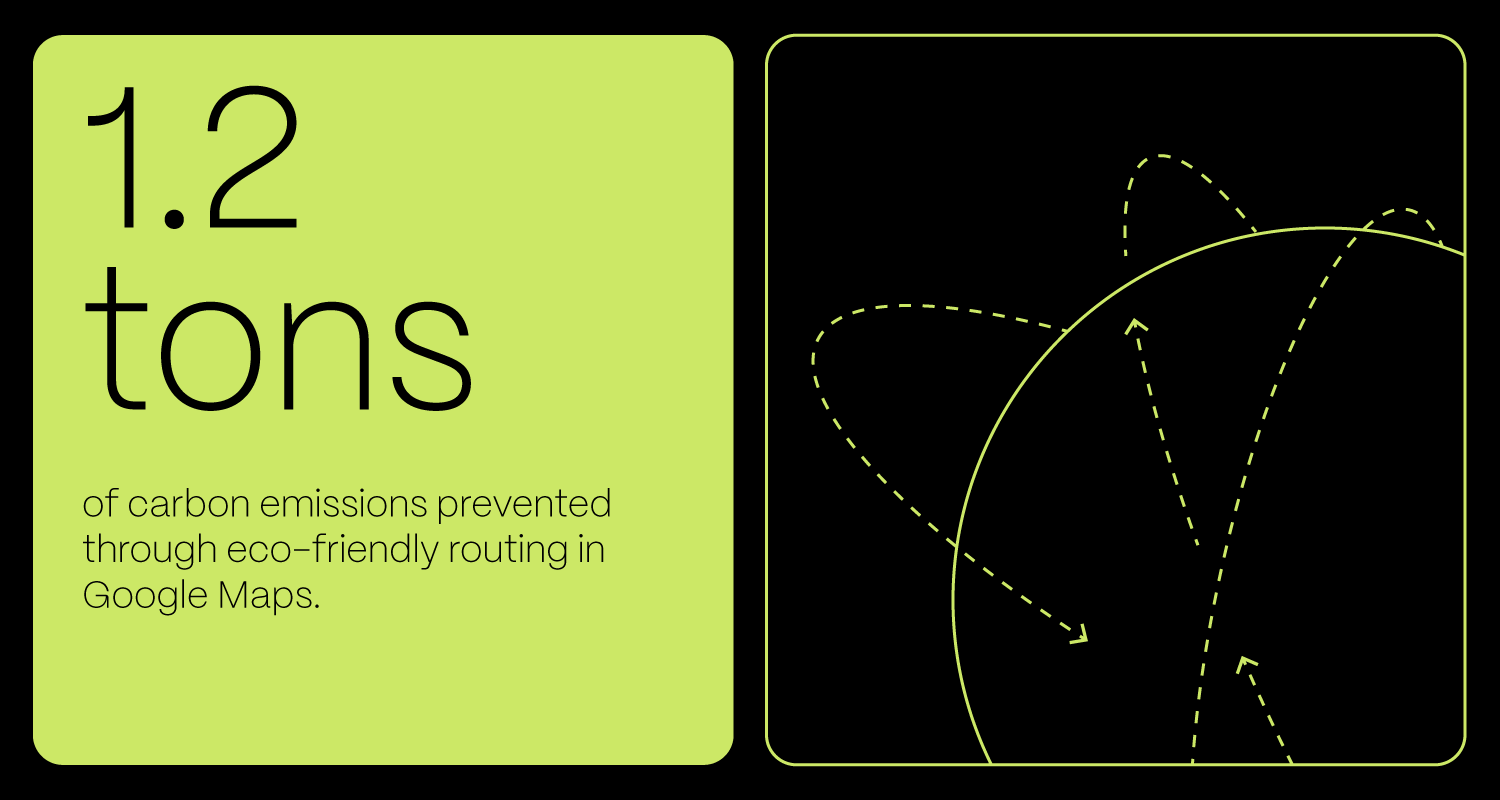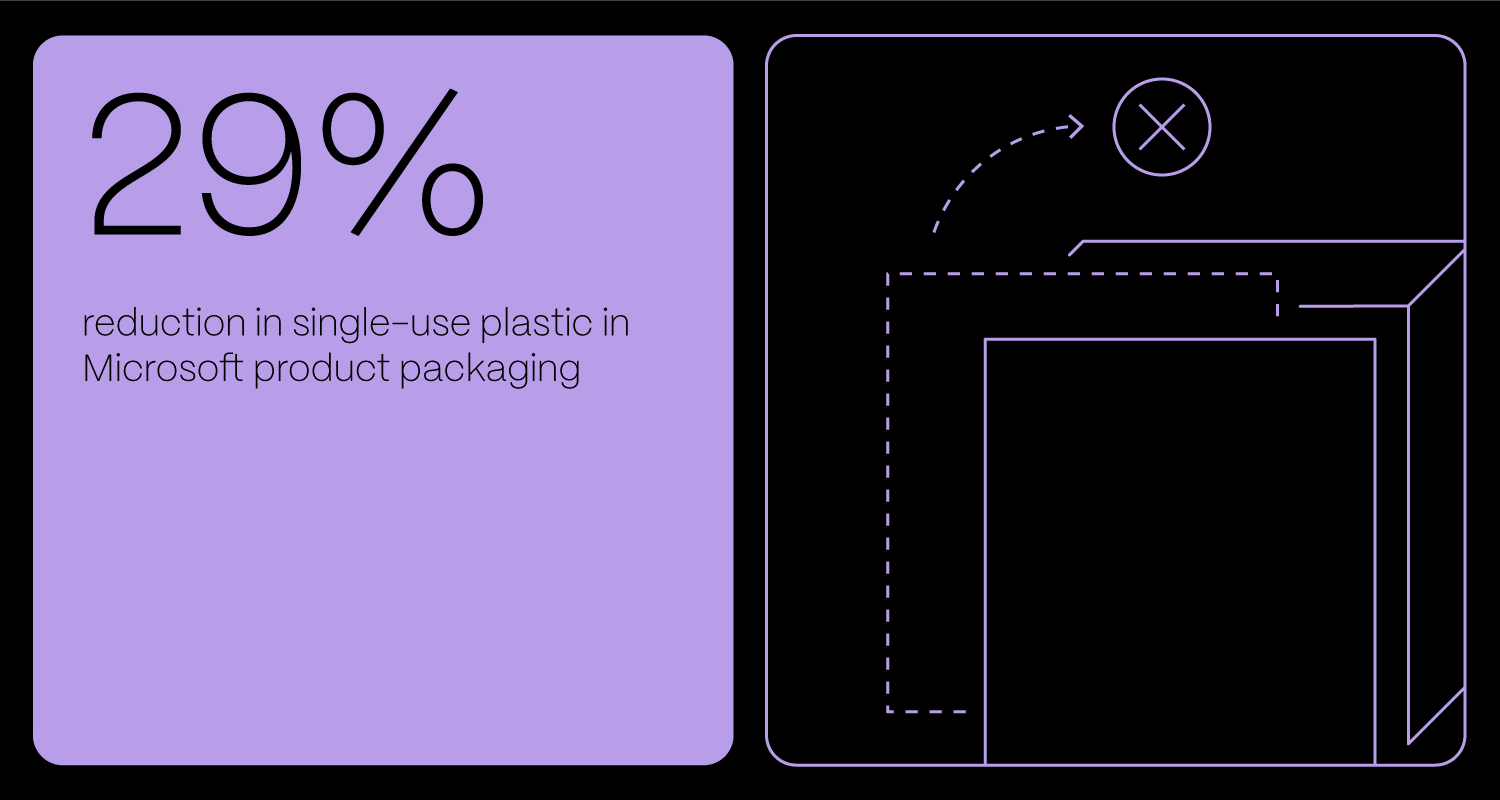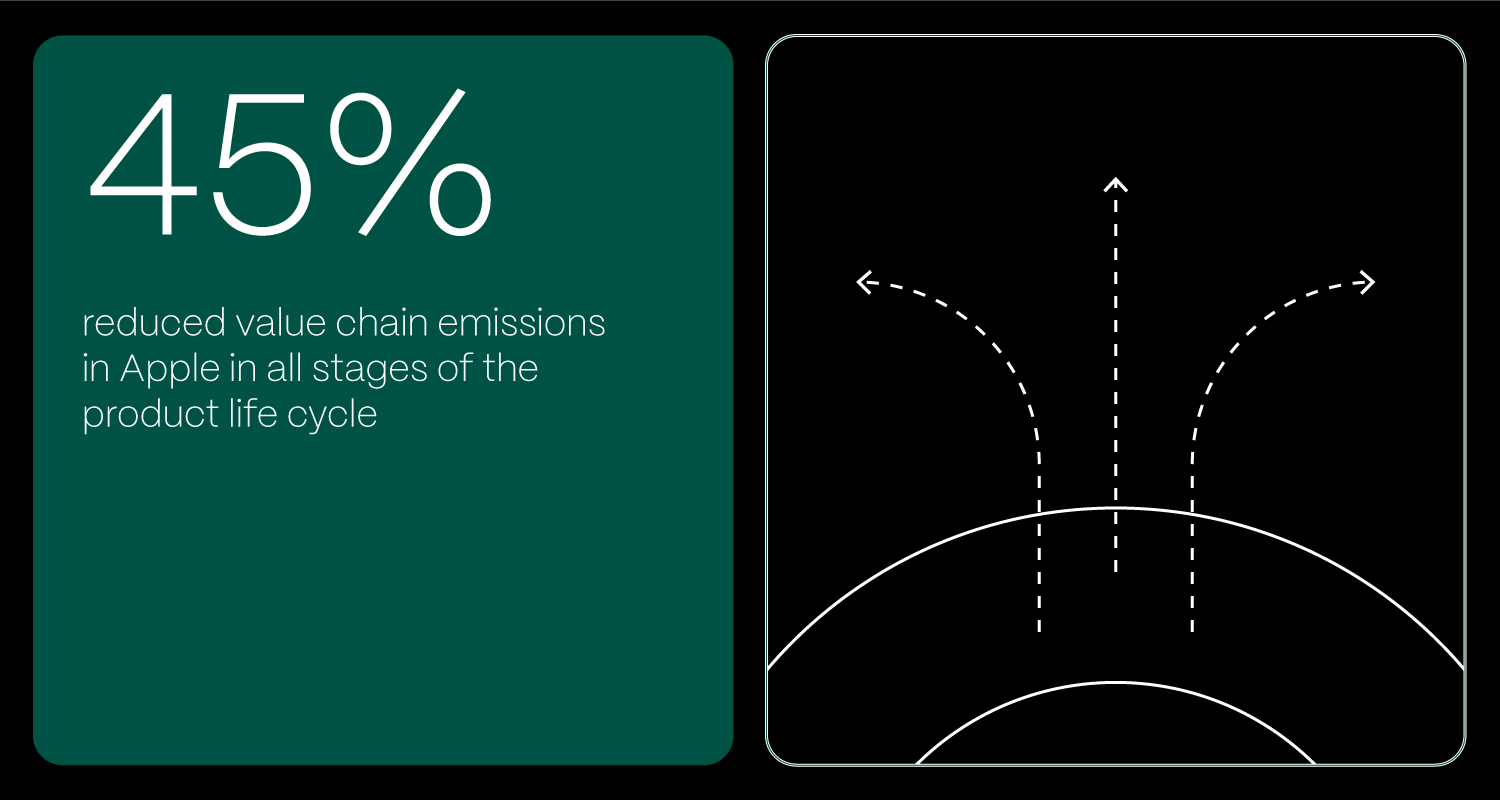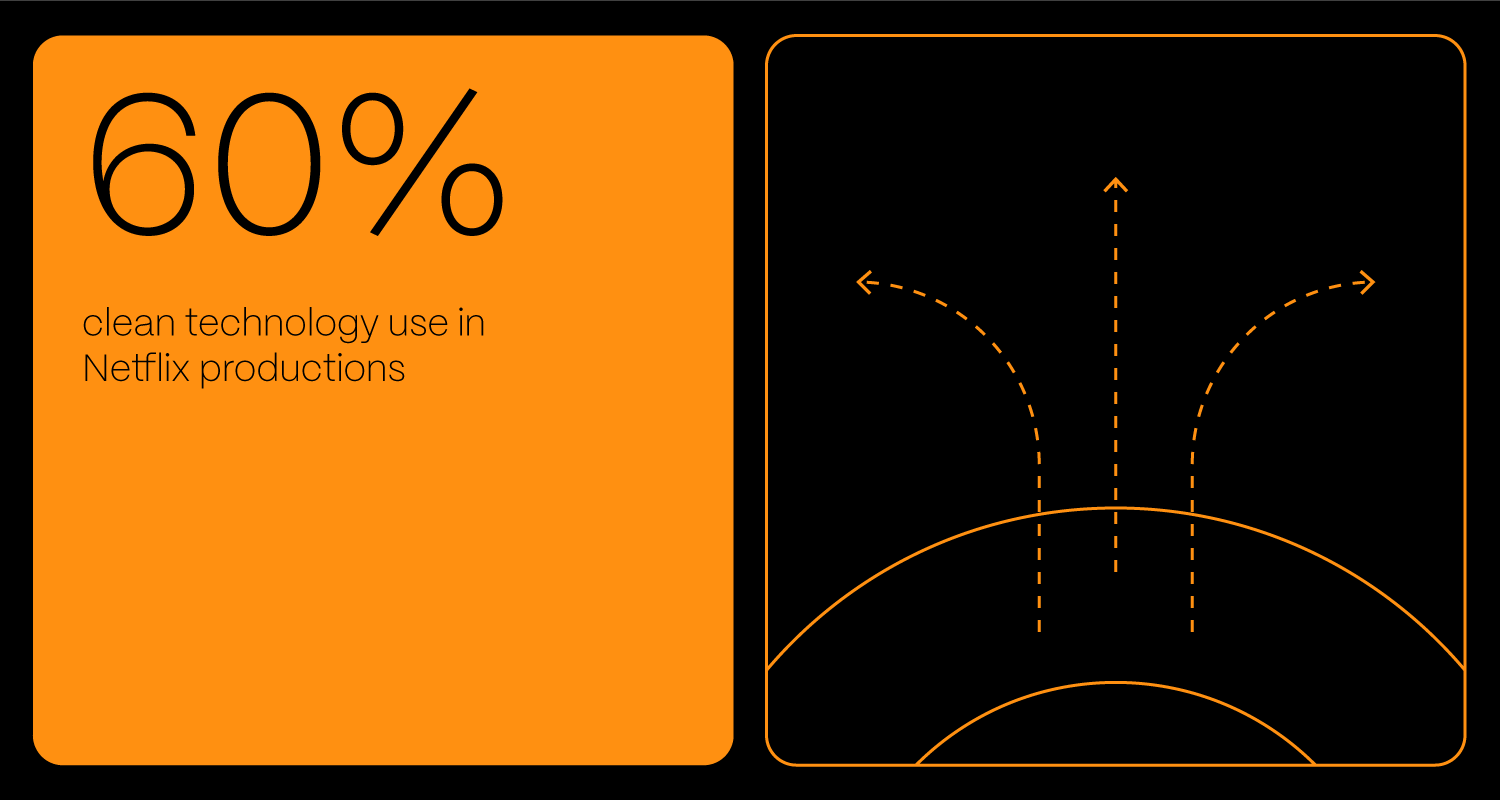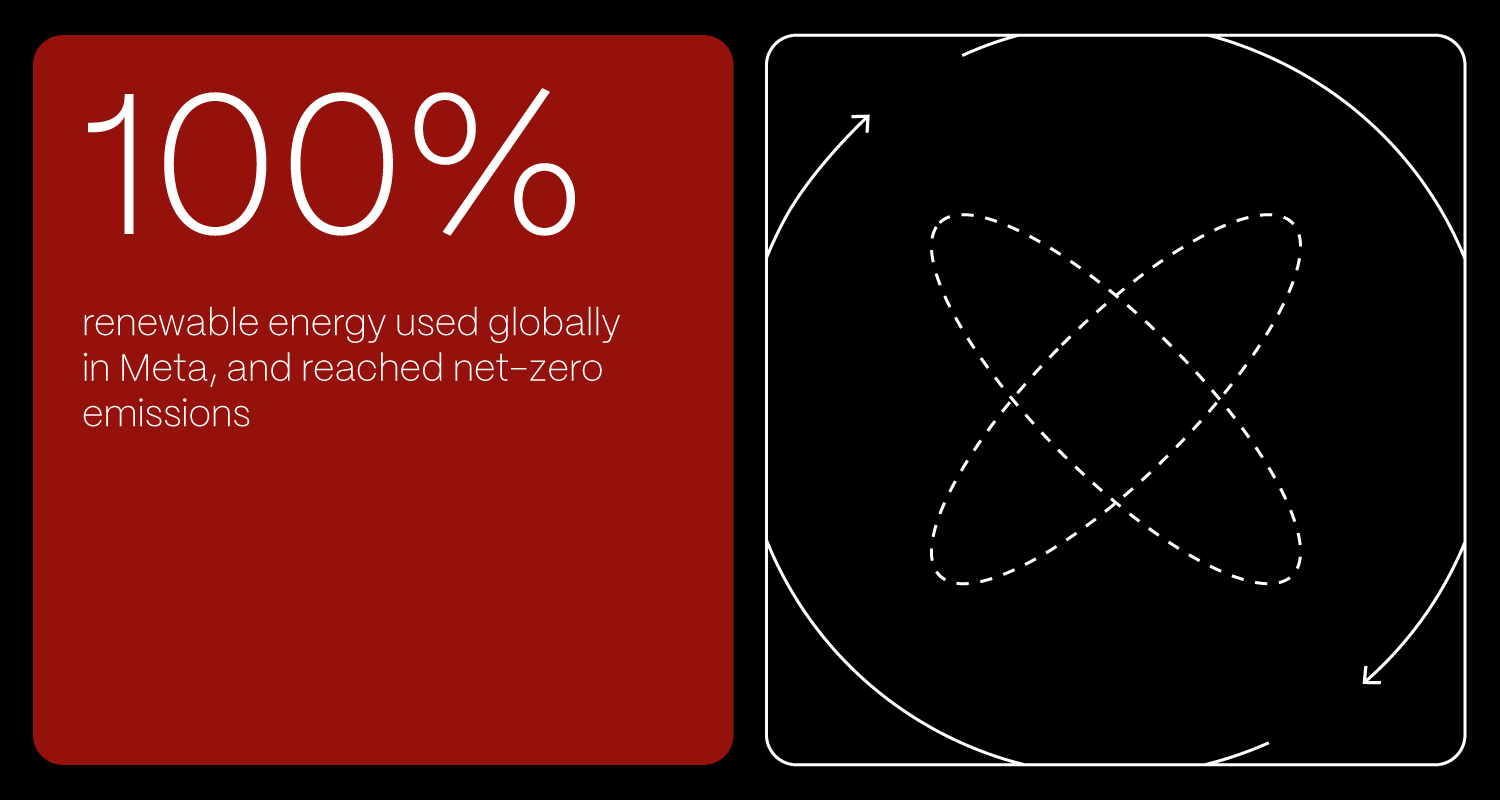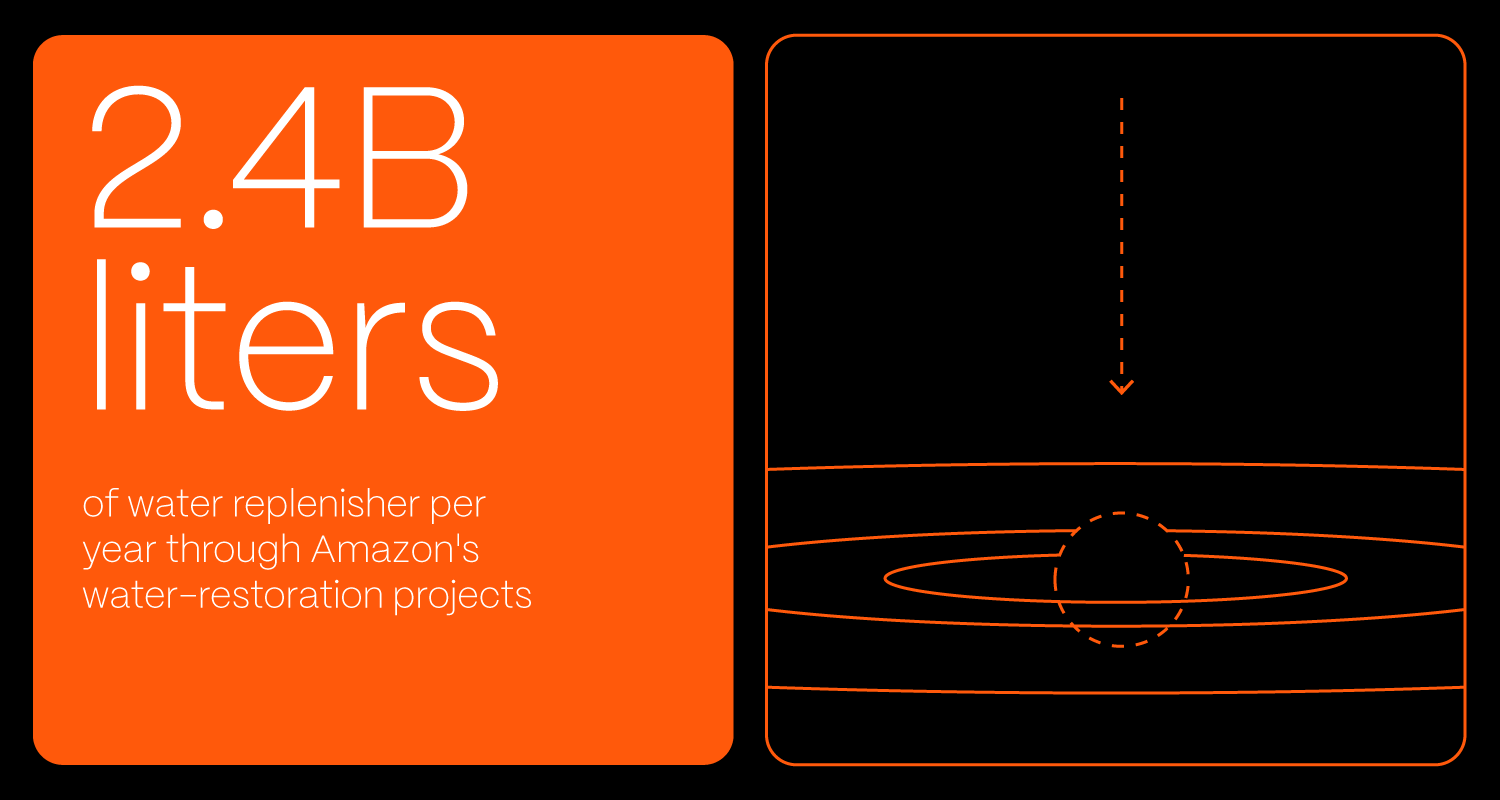How major corporations are leading the way in sustainability and what’s in it for everyone else

In 1970, the very first Earth Day in the US was established. Around 20 million people protested against corporate pollution, voicing their concerns about resource depletion and the future of the environment. These events led to the creation of the Environmental Protection Agency (EPA) and the first legislation. Fighting for the climate quickly became a global movement.
Sustainability is dominating the public discourse more than ever before. And the reason is clear: we’re not learning from our mistakes quickly enough, and we’re not taking sustainability as seriously as we should. If there’s one thing that should unite all the people in the world, it’s the care for the only home we have and share.
The good news is that we’ve moved away from the status quo, especially in the domain of corporate responsibility. You know the saying–with great power comes great responsibility? Major tech companies such as Google, Apple, Microsoft, and more are leading the way to reduce their carbon footprint and inspire business leaders to take action.
Google is spearheading the promotion of renewable energy
“I was introduced to the problem of climate change in the late 1980s through a prescient class I took as an undergraduate. The models were less sophisticated and more uncertain than they are today, but the implications were already worrying. Thirty years later, much has changed. The threat is now more immediate, but the world is also taking action.”
So writes Google’s Senior Vice President of Learning and Sustainability, Benedict Gomes, in the company’s latest 2023 Environmental Report. Gomes acknowledges the challenge of achieving net-zero emissions across all operations and value chains by 2030, but he also knows it’s possible with the right strategy in place.
Indeed, Google is one of the rare corporations that practices what it preaches by integrating sustainability into its work. Their efforts combine technological innovations with advocacy for change. There is awareness that every positive change, no matter how small it may seem, adds up.
|
For example, the company introduced eco-friendly routing in Maps. It’s estimated that this sustainability – focused product feature helped prevent more than 1.2 million metric tons of carbon emissions. That’s the equivalent of removing 250,000 fuel-based cars from the road for an entire year. |
With a mission to make sense of the vast world of information, Google is uniquely positioned to positively impact and raise awareness about climate change. In the context of empowering individuals to make sustainable choices, the company has done an incredible job. Here are just a few examples:
- Search results have been improved and updated to inform users about renewable energy options accurately.
- Google Flights now include emission estimates, which makes it easier for the person to understand their carbon footprint.
- Google Earth Engine is continuously updated to show how our planet is changing.
On top of it all, Google is using AI technology to support climate action planning and help communities address extreme weather events proactively. For instance, the company's AI-powered flood forecasting system can now predict riverine floods in several countries, providing critical time for communities to respond. AI solutions are also assisting farmers in protecting their crops thanks to locust outbreak predictions.
It’s amazing and inspiring to see a tech giant taking such a holistic approach to ensure sustainability.
Microsoft is leveraging AI for climate solutions
By 2030, Microsoft expects to have zero waste across its direct waste footprint. The company has reduced single-use plastic in its packaging by 29% and is now taking a circular approach to materials management.
Additionally, the company has made impressive strides in protecting and preserving ecosystems, becoming carbon-negative, and replenishing water resources. One of the key ways they are advancing sustainability is through AI technology.
Microsoft is one of the earliest AI pioneers. The company has been experimenting with artificial intelligence since 1991. Now, it is leveraging the technology to predict and mitigate the impacts of natural disasters and optimize energy use in data centers. But it is doing it with great caution and commitment to responsible AI development.
The company sees the potential of AI for sustainability through its capabilities to measure, predict, and optimize complex systems. But they are also thinking about the impact of using AI as a solution and are actively tracking it. This is important to avoid burning the village to save it:
“Currently, AI compute accounts for only a fraction of the electricity used by data centers, which collectively use about 1 percent of the global electricity supply. How much this increases and how AI growth affects the global race to net zero will depend on many factors.”
In a nutshell, Microsoft’s sustainable practices can be grouped into four types of initiatives:
- empowering their employees and nurturing an eco-conscious culture
- activating their ecosystem of more than 400,000 partner organizations
- engaging local communities (the company invested $8.5 million in nonprofits across the globe to make a difference)
- enabling systemic change through advocacy for policy changes
|
One standout initiative is Microsoft's Climate Innovation Fund, which invests in new technologies and business models that can reduce emissions. This fund supports startups and projects working on breakthroughs in energy efficiency, carbon capture, and sustainable agriculture. |
Apple is mastering sustainable product life cycles
In September 2023, Apple released the “Mother Nature” promotional video and globally reiterated its promise to bring its carbon footprint to net zero by 2030. The video was viewed by almost 5 million people and sparked conversations about sustainability in tech.
It’s no secret that commitment to green business practices positively boosts the company brand–especially when the main audience is highly aware of the climate change issues. Apple has done an amazing job at recognizing this to improve their “triple bottom line”– people, planet, and profit.
In 2020, Apple reached carbon neutrality for its corporate operations. They also reduced value chain emissions by 45% and called on their suppliers to decarbonize. This means that their environment team considers all stages of the product life cycle, from material sourcing to manufacturing, logistics, and product usage, and works hard to reinforce policies to make them sustainable.
|
Apple’s extensive recycling initiatives involve using recycled materials in products. Customers are encouraged to return used devices for refurbishment or recycling. For example, aluminum from old iPhones is used to produce new devices. Additionally, the company’s operations are powered entirely by renewable energy. |
In addition, Apple has pledged an additional $200 million to nature-based projects to scale up carbon removal and contribute to reforestation.
Netflix and its sustainable content production
Netflix has a strong sustainability strategy, “on and off screen.” The world’s leading streaming platform is committed to halving its emissions by 2030 and bringing its remaining net emissions from 2022 onwards to zero. Their focus is on decarbonizing film and series production. So far, they managed to use clean technology on 60% of their productions. What’s interesting and innovative about Netflix is that they use movies and series they own to promote green practices. In February 2023, the company partnered with General Motors to increase the presence of electric vehicles (EVs) on screen to popularize sustainable transportation.
Marian Lee, Netflix’s CMO, shared how Netflix creates shows and movies that can “influence culture and spark meaningful conversations,” which is why the company took it even further. With radical transparency about their sustainability efforts, Netflix is also using the power of storytelling to raise awareness on the importance of managing climate change and fighting for a better future. Over 200 series, movies, and specials have been released to address this challenging topic.
|
Netflix's commitment to green production practices, such as using renewable energy on set and reducing single-use plastics, can serve as a blueprint for smaller media and production companies. Implementing these practices can not only lower emissions but also appeal to an increasingly eco-conscious audience. |
Meta is building efficient data centers
As of 2020, Meta (formerly Facebook) has reached net-zero emissions globally. The company is now operating on 100% renewable energy, with a goal of achieving net-zero emissions across their value chains and becoming water-positive by 2030. Similarly to Microsoft and other tech corporations, Meta is committed to embedding sustainability in everything they do — from product design to commuting.
|
Looking at Meta’s global footprint, their data centers generate the highest percentage of energy use, water use, and GHG emissions. This is why they decided to focus on building efficient data centers. And, it’s all about using less energy, water, and infrastructure, i.e., being mindful of the amount of resources that are actually needed. |
Meta relies on advanced IT and mechanical, electrical, and plumbing design to optimize the efficiency of their data centers. It’s interesting that the water is a key resource used in operating the data centers. Water is mainly used for evaporative cooling. This is important for proper data center functioning during hot summer months and humid winter periods. Relative humidity, temperature, and airflow need to be in balance.
Meta experiments with these conditions and measures impact on efficiency:
“In 2022, we tested increasing our data hall temperature from 85°F to 90°F at select pilot campuses. The preliminary results indicate a reduction of over 50% of our water use over summer, with little to no impact on our data center operations.”
Sustainability is about meeting the needs of the present without compromising the ability of future generations to meet their own needs.
Amazon is the world’s largest corporate purchaser of renewable energy
In 2019, Amazon co-founded The Climate Pledge, which is essentially a commitment to becoming net-zero carbon by 2040. This initiative brought together 390 companies across 36 countries to make their ambitious climate commitments. This creates a powerful and ever-growing community of companies making a difference and challenging one another to do better.
Even the largest corporations cannot fight climate change alone, and Amazon knows that. Speaking of The Climate Pledge, Kara Hurst, Amazon’s VP of Worldwide Sustainability, shared:
“We are creating a community that inspires each other to do more, and to out-innovate even ourselves as we know we can’t do this alone.”
|
In collaboration with third-party certifications, Amazon launched climate pledge-friendly products to highlight merchandise that meets sustainability standards. While browsing through Amazon online, users can click on the leaf icon to learn more about the sustainability features of the product in question. In 2022, more than 818 million sustainable products were sold. |
Here’s an overview of Amazon’s efforts and the important milestones they reached:
- Amazon is the largest corporate purchaser of renewable energy
- The company expects to replenish 2.4B liters of water per year through water-restoration projects
- A total of 90% of electricity consumed across Amazon’s operations is now attributable to renewable energy sources
- Thanks to innovative processes and materials, Amazon is committed to increasing recycling (since 2015, more than 2M tons of waste has been eliminated)
Additionally, Amazon's initiatives, such as the deployment of electric delivery vehicles and the optimization of logistics routes using data and AI, provide a practical framework for smaller companies. Greener options and solutions are within the reach for companies with more modest budgets as well.
Why smaller companies need to embrace sustainability
There is a strong business case for sustainability. In the past, adopting environment-friendly business practices felt out of reach–especially when they were not perceived as an immediate priority. Now it's proven that there is no financial trade-off regarding sustainability initiatives. In fact, sustainability is a part of a smart financial strategy.
By embracing sustainability, not only do you reduce environmental risk, but you also lower production costs and optimize operational expenses. Think about it: when you’re auditing your business for eco-friendly practices, you are essentially auditing for inefficiencies. Better efficiency often leads to higher production, and if it’s good for the planet, it’s certainly good for your business.
In tech, there is an incredible field of opportunities for innovation. From customized green tech solutions and real-time data integrations for monitoring environmental impact to predictive AI models and data analytics – the potential is huge.
You need the right tools to understand your company’s energy consumption, waste generation, and emissions patterns. That’s the path to sustainability.
How digital partners can help companies go green
If you want your company to go green, you must be open to collaboration. Sometimes, that requires bringing in external partners to support you in areas that are not your immediate domain of expertise. Sustainability is definitely a team effort, and digital partners and tech experts with niche experience can help a lot. Below are a few first-hand examples from practice.
Customized green tech solutions
Having a reliable digital partner who handles mobile and web development can enhance operational efficiency and reduce environmental impact. Whether optimizing your supply chain, implementing AI for predictive maintenance, or developing energy-efficient applications, tailored solutions can help you achieve your sustainability goals.
Real-time data integration
Imagine if you could measure and monitor your environmental impact in real time, and then make data-driven decisions to improve sustainability. Well, that’s now possible with real-time data integrations. With the help of advanced sensors and data collection tools, data engineers can set dashboards that continuously track air and water quality, energy consumption, and waste production.
Predictive AI models
The right digital partner can develop AI-powered predictive models for your business, enabling you to anticipate and mitigate environmental risks. By analyzing historical data and identifying trends, these models can guide companies in making proactive decisions to reduce their carbon footprint and optimize their operations.
Data analytics and insights
In a nutshell, the value of data analytics solutions reflects in their capability of turning raw data into actionable insights. These types of tools allow businesses to understand their energy consumption, waste generation, and emissions patterns. Understanding the current state of affairs is the first step toward implementing effective sustainability strategies.
Scalable software solutions
Scalable software solutions grow with your business needs. When you develop and design software with the environment in mind – emissions tracking, resource allocation, and energy use are all optimized. Great digital partners take time to analyze what you need right now and what you’ll need in the future. That’s how they build platforms capable of handling increasing data volumes and complex analytics, ensuring that your sustainability efforts are supported as your company expands.
The time is now
We’ve seen the tremendous efforts of major corporations like Google, Apple, and Microsoft. These tech leaders’ sustainable practices are not just about reducing their environmental impact. They also set a powerful example for smaller businesses.
Smaller companies can make significant strides toward sustainability by learning from these industry leaders and leveraging the expertise of partners like Vega IT. In doing so, they contribute to a collective effort to address climate change and build a more sustainable future for all.
We are eager to partner with businesses aiming to innovate in the sustainability sector. Are you one of them? Together, we can drive the transition to a greener future: contact us today.


